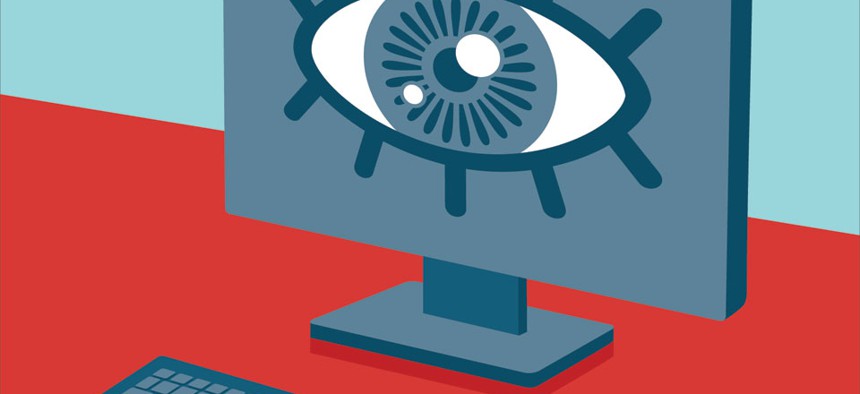Obama's 'Privacy Bill of Rights' Gets Bashed from All Sides

JoeBakal/Shutterstock.com
The proposal aims to give consumers more control over their own information, but privacy advocates say it doesn't go far enough.
The White House unveiled an ambitious legislative proposal Friday to restrict how companies, including Web giants like Facebook and Google, can handle private information. And it was promptly denounced by industry groups and privacy advocates alike.
Tech companies warned that the so-called "Consumer Privacy Bill of Rights Act" would impose burdensome regulations, potentially stifling exciting new online services that could benefit consumers. Privacy advocates claimed the bill is riddled with loopholes and would essentially let companies write their own rules.
"We didn't celebrate a great victory yesterday in the fight to protect the Internet for American consumers just to turn around and enable their online information to be easy prey for digital bandits seeking to pilfer Americans' personal information," Sen. Ed Markey, a Massachusetts Democrat and longtime privacy advocate, said, referring to the Federal Communications Commission's vote on Thursday to enact strong net neutrality rules.
Rather than supporting the White House's bill, Markey said he plans to reintroduce his own privacy legislation next week that would crack down on "data brokers"—firms that buy and sell personal information.
The White House proposal is an expansion of seven principles that President Obama outlined in 2012 to protect consumers' online privacy, an idea that went nowhere. The administration now is offering its own legislative text of the principles in a bid to jumpstart discussions on Capitol Hill.
"The Obama administration is committed to protecting consumer privacy while also giving U.S. businesses the flexibility they need to grow and innovate," Lawrence Strickling, the Commerce Department's assistant secretary for communications and information, said in a statement. "With this discussion draft the White House released today, we want to advance President Obama's framework for protecting consumer privacy by bringing all parties to the table to further discuss how we effectively apply privacy protections in the digital age."
The draft bill would declare that consumers have a right to understand how their data will be used, to delete the data collected about them, and to only have data collected in "context"—that is, companies shouldn't reuse or sell data in surprising ways. It would be the first time that U.S. consumers would have broad rights for how companies across all industries could handle their data. Health privacy protections and other sector-specific laws would remain in place.
But privacy advocates are disappointed that the proposal would not give the Federal Trade Commission the power to set regulations to enforce the principles. Instead, companies and industry associations would write their own rules and then ask the FTC to sign off on them. Additionally, the bill would overturn state laws that offer stronger protections.
Alvaro Bedoya, the executive director of the Center on Privacy and Technology at Georgetown University Law Center, warned that the bill "seems to assume a world where all of our data is collected about us, all of the time."
"Since the 1800s, the right to privacy has included a simple right to say 'leave me alone.' This bill moves us to a world of 'take what you want—but try to behave,' " Bedoya said.
Jeff Chester, the executive director of the Center for Digital Democracy, called the draft a "huge win" for companies like Google and Facebook.
"The president allowed the process to be hijacked by the Commerce Department, which is more aligned with the data lobby than the American public," Chester said.
But the Web companies themselves aren't so thrilled with the proposal either. Michael Beckerman, the CEO of the Internet Association, which represents Google, Facebook, Amazon, Yahoo, and others, warned that the bill "casts a needlessly imprecise net."
The Consumer Electronics Association, which represents Apple, Samsung, and other device makers, was even harsher. Gary Shapiro, the group's CEO, said the White House bill "could hurt American innovation and choke off potentially useful services and products."
Even the Federal Trade Commission, which is made up of three Democrats and two Republicans selected by the president, is balking at the bill. An agency spokesman identified "concerns that the draft bill does not provide consumers with the strong and enforceable protections needed to safeguard their privacy."
House Republicans issued one of the more generous reactions to the draft. "There are some interesting elements included in the president's proposal, but we must tread carefully," said House Energy and Commerce Committee Chairman Fred Upton and Commerce, Manufacturing, and Trade Subcommittee Chairman Michael Burgess in a statement.
The proposal did, however, win support from Microsoft, as well as the Software and Information Industry Association.
(Image via JoeBakal / Shutterstock.com)






